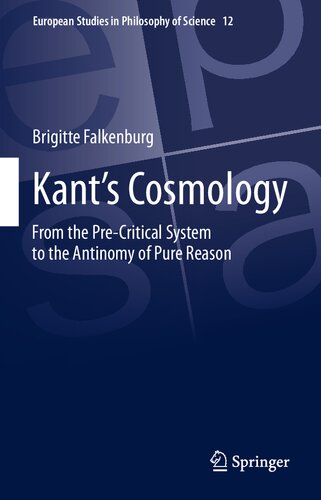

Most ebook files are in PDF format, so you can easily read them using various software such as Foxit Reader or directly on the Google Chrome browser.
Some ebook files are released by publishers in other formats such as .awz, .mobi, .epub, .fb2, etc. You may need to install specific software to read these formats on mobile/PC, such as Calibre.
Please read the tutorial at this link: https://ebookbell.com/faq
We offer FREE conversion to the popular formats you request; however, this may take some time. Therefore, right after payment, please email us, and we will try to provide the service as quickly as possible.
For some exceptional file formats or broken links (if any), please refrain from opening any disputes. Instead, email us first, and we will try to assist within a maximum of 6 hours.
EbookBell Team

5.0
70 reviewsThis book provides a comprehensive account of Kant’s development from the 1755/56 metaphysics to the cosmological antinomy of 1781. With the Theory of the Heavens (1755) and the Physical Monadology (1756), the young Kant had presented an ambitious approach to physical cosmology based on an atomistic theory of matter, which contributed to the foundations of an all-encompassing system of metaphysics. Why did he abandon this system in favor of his critical view that cosmology runs into an antinomy, according to the Critique of Pure Reason (CPR)? This book answers this question by focusing on Kant’s methodology and the internal problems of his 1755/56 theory of nature. A decisive role for Kant’s critical turn plays the argument from incongruent counterparts (1768), which drew much attention among philosophers of science, though not sufficiently in Kant research. Furthermore, the book analyses the genesis of the cosmological antinomy in the 1770s, the logical structure of the antinomy in the CPR, its relation to transcendental idealism, as explained in the “experiment of pure reason” (1787), and its role for the teleology of human reason. The book is addressed to Kant scholars, philosophers of science, and students of Kant’s philosophy.